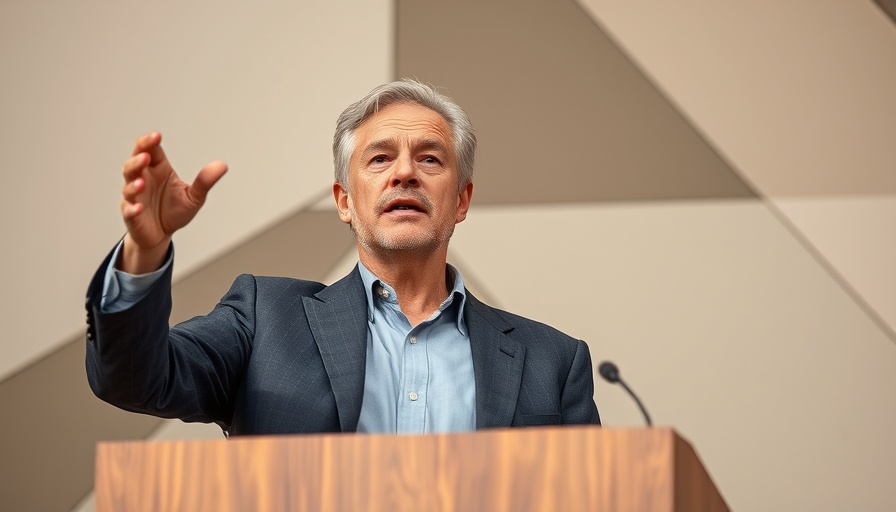
The Role of Public Persuasion in Modern Revival Movements
In today's rapidly changing cultural landscape, the importance of public persuasion cannot be overstated for spirit-filled Christians seeking revival in their communities. The recent broadcast of The Lance Wallnau Show sheds light on this significant aspect, urging believers to step beyond traditional confines and engage actively in cultural discourse.
In 'The Religious Spirit is a real thing and it’s fighting the next REVIVAL', the discussion dives into the dynamics of public persuasion and cultural engagement, exploring key insights that sparked deeper analysis on our end.
Historical Context: Lessons from Wilberforce
Highlighting the remarkable efforts of William Wilberforce, who mobilized Christians to address the moral crisis of slavery in the UK, Wallnau emphasizes that movements often began not within the church but in collaborative circles that included educators, politicians, and artists. This coalition explores economic and social arguments for change, demonstrating that spiritual awakenings often must capitalize on practical reasoning to gain traction in broader society.
The Challenge of the Religious Spirit
The video points out that the greatest obstacle in the church today is often a 'religious spirit' that seeks to inhibit genuine movements of the Holy Spirit. This spirit attempts to subdue passionate believers by diverting their energies toward mere gatherings rather than fostering actionable plans that impact society. It is a calling for believers to shake off this hindrance and embrace an active role in the public arena.
Mobilizing for Action: The Nehemiah Project
Drawing parallels with Nehemiah’s mission to restore Jerusalem's walls, this movement is about taking responsibility for one’s community and pushing against the inertia of complacency within the church. Believers are encouraged to get involved in sequential sectors such as education, government, and media to champion righteousness and respond to the culture of secularism infiltrating public life.
What Lies Ahead: A Call to Arms
Wallnau posits that America may be on the cusp of another great revival reminiscent of the Azusa Street movement. However, such resurgence is not guaranteed; it requires proactive involvement from believers to strike against the entrenched powers that seek to undermine moral and spiritual values. The narrative illustrates that achieving transformation requires more than spiritual fervor — it calls for strategic action and collective unity among believers.
 Add Row
Add Row  Add
Add 




Write A Comment